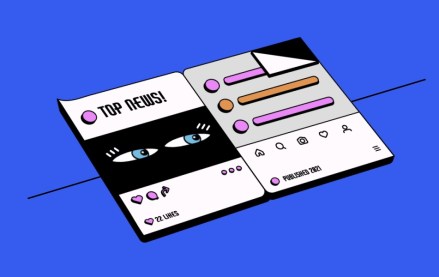
In the business-to-business world, the phrase “getting it” is uttered often, by both agency and by client. Actually, the phrase you usually hear is “doesn’t get it.” You don’t think the client gets it, and the client doesn’t think you get it. Therein sits the seed of the Great Disconnect between agencies and their B2B clients.
It’s easy for agencies to see where clients don’t get it. B2B clients think they’re you’re only client, that you’re on call, that revisions are as easy to make as they are to request. B2B marketers often think that everything is just a thing you do with Photoshop: point, click, done. Some agencies do a good job of managing this perception, but most others get tossed around by it.
But it’s the other side — from the client’s point of view –that’s hard for agencies to see.
First of all (this will be a relief for many to hear), it’s not about the products. You’re likely working with B2B companies where experienced pros need months to understand what the company builds and how it builds it. They want you to try to understand what they make (when you don’t, they think you’re lazy). But they don’t really expect you to “get” their products.
When B2B clients have that “don’t get it” look (and when they talk about you behind your back), they’re thinking that whatever it is you’re saying or showing demonstrates no understanding of their markets. Of course, to many (should I say most?) agencies, those B2B markets seem arcane and murky — as impenetrable as the products they buy. It’s easy to empathize with people who need new HDMI cables; they’re just like you.
But electrical engineers needing 30 miles of high-voltage underwater power cable with two cores and PVC sheathing? That’s a whole other kettle of fish (and only fish understand fish). It may seem that way, but it’s not. You know those difficult, technical, mysterious markets like the back of your hand. You “get it” perfectly.
Here’s an example. I’ve owned guitars for a long time. Let’s call me an amateur expert. A couple of years ago, I bought a new one. I went into the shop and played a dozen. I ignored the marketing messages — all the product info about “highs” or “action” or “tone.” In fact, I tried to step over as many adjectives and beauty shots as I could without slipping. I read specs; I talked saddles and machine heads and woods. I strummed; I picked; I bought.
Ad position: web_incontent_pos1
That’s not just how I buy guitars; that’s my buying habit for anything I know a lot about. What about you? Aren’t there things at which you’re an expert—amateur or otherwise? Cooking or carpentry or Creative Suite? As an expert, think of your own personal buying habits. They’re similar to mine—you don’t need to read bullet points about product value, because you already know all about it. My guess is that you too go right to the details. If someone tries to ply you with marketing babble, you might even be like me and get cranky. When marketing says “renders images at blazing speed,” your only thought is, “how fast and with how much memory?” You don’t need the hype; you don’t notice the hoopla, and you don’t want the hassle. What you want is help making an informed decision. That’s the kind of marketing you respond to best.
Good news: That attitude we have about our expert buying experiences? Our desire to sidestep the flash and folderol, to cut through the crap? The way we ignore creative and focus on content? That mindset that says, “all I really want is help making an informed decision”? That’s exactly what a B2B customer is like. So congratulations; now you get it. B2B markets are just like you.
Michael Fischler is a tech copywriter who has been involved in B2B marketing his entire career.
Ad position: web_incontent_pos2
Image via Shutterstock
More in Marketing

In the marketing world, anime is following in the footsteps of gaming
As marketers look to take advantage of anime’s entry into the zeitgeist, they might be wise to observe the parallels between the evolution of anime as a marketing channel and the ways brands have learned to better leverage gaming in recent years.

With the introduction of video ads and e-commerce, Roblox looks to attain platform status
Roblox is expanding into more areas than just ads in 2024. Much like platforms such as Amazon and Facebook have transcended their origins to evolve from their origins as online marketplaces and social media channels, Roblox is in the midst of a transformation into a platform for all elements of users’ virtual lives.

PepsiCo wants to remain a ‘driver of culture’ as it turns to influencers and activations amid rebrand
The soda-maker says it can translate cultural relevance into sales volume.
Ad position: web_bfu